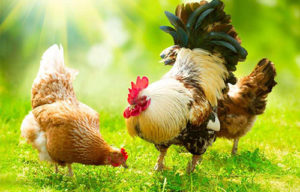For the chicken farmers, the survival rate of the chickens is the key to determining the economic benefits of the farmers. Therefore, how to raise the survival rate of the chickens has always been pursued by the farmers. To improve the survival rate of the chickens, It is necessary to be scientific and reasonable in each breeding work to ensure the survival rate and benefits of the growth of the chickens.
1. Feeding the chicks: How to raise the chicks in the chick stage can directly affect the survival rate and growth performance of the chickens after adulthood. Therefore, when raising the chicks, the farmers must strictly follow the feeding standards and do well. The temperature and humidity of the house and the nutrition of the feed and so on can only make the chicks grow better and lay a solid foundation for the chickens.
2. Control the environment of the chicken house: the chickens expect to pollute the chicken house in the chicken house, feed, manure, sewage, dust, etc., causing the phenomenon of large-scale reproduction of pathogenic microorganisms, directly affecting the health of the chickens, so Controlling the sanitation environment of the chicken house is the key to improving the survival rate of the chickens. The farmers must pay attention to cleanliness, diligent disinfection, diligent cleaning, and less feeding during the daily feeding process in order to improve the feed. Utilization, reducing feed waste.

3. Control the appropriate density: Most of the farmers now use broiler battery cages to raise broilers. Chicken cages must be used to control the stocking density. If the density is too high, the growth imbalance of the chickens will be The increase of harmful gases in the air, chickens are easy to infect E. coli, coccidia, etc., and can accelerate the disease epidemic, so the farmers must not greet the appropriate density in the process of raising chickens.
4. Develop immunization procedures: Infectious diseases are the key killers that endanger the survival rate of flocks. To reduce or avoid the occurrence of infectious diseases, immunization is a must-do work. Reasonable immunization can reduce and avoid all kinds of contagiousness. The occurrence of the disease, but the farmers should pay attention to the development of a reasonable immunization program to ensure the immune effect.
5. Regular drug prevention: Most bacterial diseases rely on the regular delivery of drugs to achieve prevention. The bacterial diseases and parasitic diseases that are prevalent in spring mainly include colibacillosis, salmonellosis, chronic respiratory diseases, coccidiosis, etc., and most of these diseases are related to age and environmental changes, which requires different The situation to develop different medication prevention procedures.
6. Timely isolation of sick chickens: Once a farmer has abnormal conditions, it should be immediately isolated and fed to prevent it from being reared with normal chickens and infecting healthy chickens, causing greater losses.